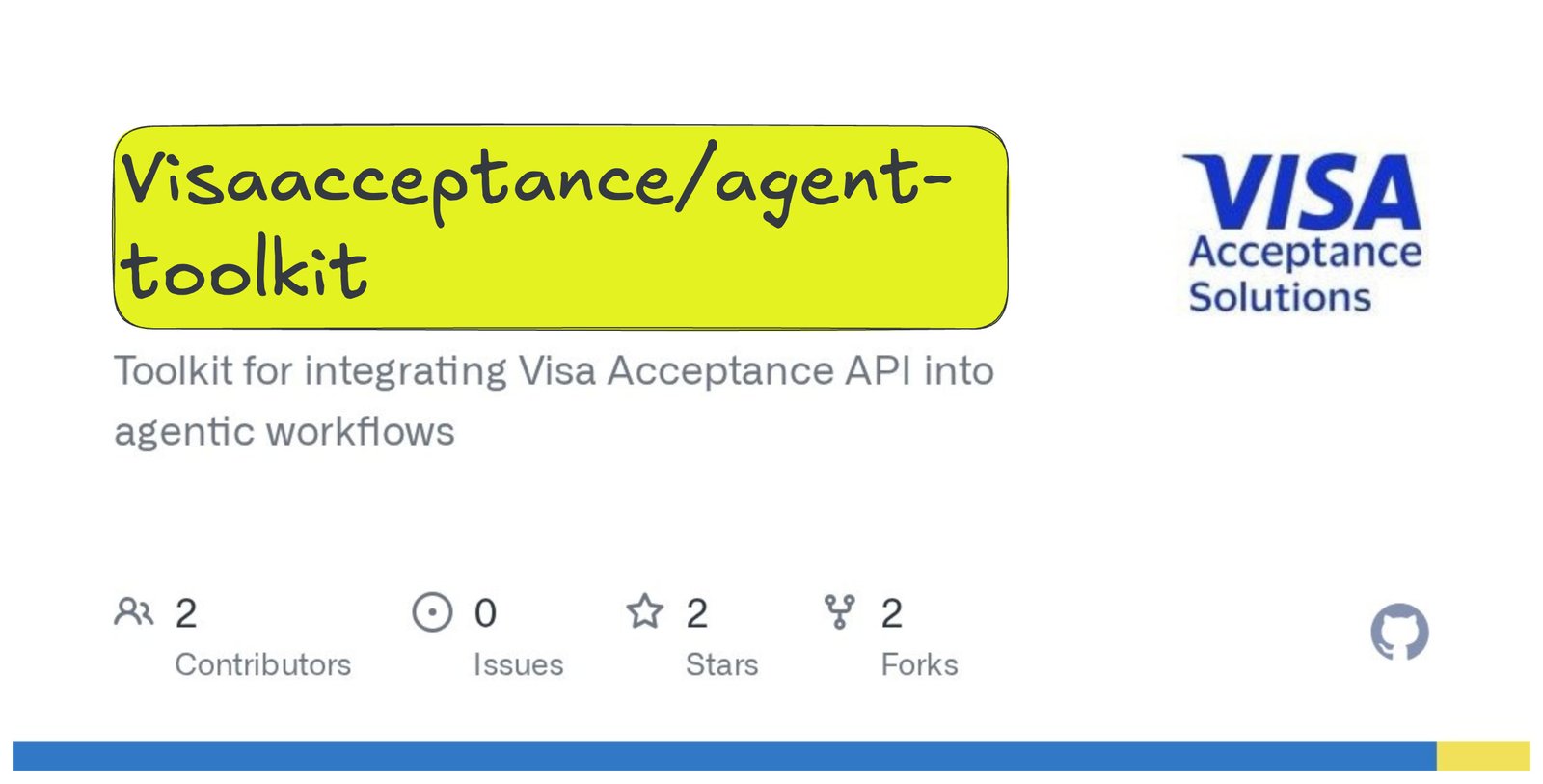Business
Wall Street Loves AI Hype, but Less Than 1 in 10 Businesses Use It. Here’s Who’s Winning Anyway.
Key Points
-
AI is a popular investing trend despite the fact that its use is not widespread throughout the business world.
-
San Diego and Boston are the cities where AI usage is most prevalent.
-
The information sector is the leading the way in AI adoption.
Where to invest $1,000 right now? Our analyst team just revealed what they believe are the 10 best stocks to buy right now. Learn More »
There’s no denying that Wall Street analysts remain bullish about artificial intelligence (AI) stocks — even in light of some of the massive gains they’ve already made. Main Street investors have also been incredibly ebullient about the prospects of stocks that have varying levels of AI exposure.
But the optimism that analysts and retail investors share belies the fact that many businesses are still not incorporating AI solutions into their operations, according to the latest research from The Motley Fool. Beguiling as this may be, AI is still growing in popularity in certain regions and organizations.
Image source: Getty Images.
AI and the city
Far from ubiquitous, the adoption of AI varies greatly throughout the United States. There are some areas that stand out, though. Southern California, for example, is one of the hotbeds for AI activity. Leading the nation, the San Diego metropolitan area currently boasts a 16% usage rate, and it’s expected to rise to about 20%.
The popularity of AI in the San Diego metropolitan area stems from the multitude of AI start-ups located there. For example, Shield AI is an aerospace and defense company that is developing an autonomous pilot in collaboration with Kratos Defense and Security.
Unsurprisingly, the Boston metropolitan area — home to prestigious academic institutions like Harvard and the Massachusetts Institute of Technology — is another significant source of AI activity. Whether it’s a reflection of graduates from Harvard and MIT staying in the area or the faculty from these institutions, many AI start-ups are calling the city home. Boston Dynamics, for instance, is a leader in AI and autonomous robots, and it traces its history back to MIT.
AI in the workplace
Currently, only 9.2% of businesses are incorporating AI solutions. Although this may seem low, it’s a noticeable gain over the 3.7% adoption rate the U.S. Census Bureau identified when it first started collecting data in the fall of 2023. The spread of this technology doesn’t show signs of slowing down either — it’s projected that in six months, 11.6% of businesses will be using AI.
Consistent with its growing popularity among individuals in and out of the workplace, the information sector, which includes tech and data companies, is the leading source of AI adoption in business with a 24.2% usage rate. For example, ChatGPT, now a household name, has emerged as a prime tool for sourcing information much the same way that Alphabet‘s Google developed into the leading internet search engine.
The sector is packed with some of the most recognizable, established providers of AI tools. From Microsoft Copilot and Alphabet’s Gemini to IBM‘s Watson AI and Apple‘s Siri, the information sector is a who’s who of AI innovators. Of course, so many of the capabilities that companies can provide in generative AI, along with other AI functionality, are made possible by Nvidia (NASDAQ: NVDA), which designs industry-leading graphics processing units (GPUs).
That’s not to say that other sectors aren’t embracing AI. Featuring a 21.4% usage rate, the mining sector is also a notable proponent. One of the largest mining companies by market capitalization, RioTintoGroup, has incorporated AI into various aspects of the company’s operations, including autonomous haulage systems and creating 3D subsurface maps to improve exploration of mineral deposits.
If you’ve bought or sold a home recently, you’ve likely noticed how common AI is in the real estate industry too, where AI has a 17.4% usage rate. Zillow Group and Redfin rely on the technology to assist in producing property value estimates, while Nvidia provides the ability to produce digital twins, enabling virtual tours with its Omniverse technology.
As it becomes increasingly well-known how businesses are leveraging the power of AI, non-adopters will surely begin to incorporate the technology in greater numbers.
Should investors eschew AI stocks due to their relatively low adoption rates in business?
While it may be some time before AI is truly widespread across industries, investors should not take this data as a cue that now is a poor time to invest in AI stocks. The early stages of a major technological shift tend to also be an optimal time for growth investors to build their exposure to stocks in the space.
For an all-in-one AI stock, investors will want to strongly consider Nvidia. Its dominant position in the AI landscape has made it the world’s most valuable company, and it has the launch of new GPUs featuring its Blackwell Ultra architecture representing just one near-term catalyst. There is plenty of growth potential on the horizon too.
And that’s not to say that more conservative investors should avoid AI stocks, either. If managing risk and diversification are top concerns, they can consider an AI-focused ETF as yet another way to prosper from the burgeoning industry.
Should you invest $1,000 in Nvidia right now?
Before you buy stock in Nvidia, consider this:
The Motley Fool Stock Advisor analyst team just identified what they believe are the 10 best stocks for investors to buy now… and Nvidia wasn’t one of them. The 10 stocks that made the cut could produce monster returns in the coming years.
Consider when Netflix made this list on December 17, 2004… if you invested $1,000 at the time of our recommendation, you’d have $633,452!* Or when Nvidia made this list on April 15, 2005… if you invested $1,000 at the time of our recommendation, you’d have $1,083,392!*
Now, it’s worth noting Stock Advisor’s total average return is 1,046% — a market-crushing outperformance compared to 183% for the S&P 500. Don’t miss out on the latest top 10 list, available when you join Stock Advisor.
*Stock Advisor returns as of July 29, 2025
Scott Levine has no position in any of the stocks mentioned. The Motley Fool has positions in and recommends Alphabet, Apple, International Business Machines, Microsoft, Nvidia, and Zillow Group. The Motley Fool recommends the following options: long January 2026 $395 calls on Microsoft and short January 2026 $405 calls on Microsoft. The Motley Fool has a disclosure policy.
Business
Deep Dive: The Checkout Killer? Visa’s AI Agents Are Open for Business: By Sam Boboev

Imagine
telling an AI assistant to “plan my trip to Miami,” then sitting back as it finds the perfect flight, hotel, and even buys that new fishing reel you wanted – all on its own. That’s the vision behind Visa’s Intelligent Commerce, a new platform that lets AI
“agent” software find, shop, and buy on your behalf. At Visa’s recent Product Drop 2025 event, CEO Ryan McInerney and Chief Product Officer Jack Forestell unveiled this initiative as a “new way to buy with AI in the same trusted, secure way to pay”. It’s Visa’s
big bet on agentic commerce, where autonomous AI agents handle the whole shopping journey for consumers. The goal? To close the “discovery – to – purchase” gap – so when an AI finds you the perfect item, it can actually check out and pay seamlessly, with all
the fraud protections and trust of Visa’s network.
One thing’s for sure, the commerce UX is evolving. In a few years, we might reminisce about how we used to spend hours comparison – shopping and filling out forms, while our AI butlers handle the mundane purchasing in the background. And Visa will be quietly
running the register for all those machine – mediated transactions – taking its (hopefully reduced) cut, but at far greater volume.
New world, same Visa? Not exactly, but Visa is doing what savvy incumbents do – skate to where the puck is headed. And in 2025, that puck is an autonomous agent eager to buy stuff for us. Get ready – your next customer might not be human, and now
is the time to plan for it.
In this deep dive, we’ll break down what Visa Intelligent Commerce is offering, why it matters for the fintech and payments ecosystem, and where it might be headed – including how it intersects with Web3’s world of programmable money and crypto. Let’s dig
in.
Visa’s Intelligent Commerce
Visa’s Intelligent Commerce initiative is essentially a developer platform and partner program to enable AI – driven buying. It introduces a suite of five APIs – spanning tokenization, authentication, personalization data, payment instructions, and payment
signals – designed to let AI agents transact as securely and smoothly as any human shopper. Visa also announced an agent onboarding framework (through a partner program) that will vet and certify AI agents before they can tap into the network. And they didn’t
go it alone – Visa lined up key partnerships with big names across AI and fintech to jumpstart this ecosystem. They’re collaborating with OpenAI to help set agentic commerce standards and enable use cases on OpenAI’s platforms. They’re working with Stripe
(a leading payments processor already experimenting with agents) to adopt Visa’s solution and drive agent – based payments. Perplexity AI, a fast – growing AI search platform, is integrating Visa’s personalization APIs to make its shopping recommendations
more tailored. Ramp, known for business finance, is exploring B2B agent use cases with Visa. And Scale AI is partnering on the infrastructure side to support enterprise – grade agent commerce. In short, Visa is rallying both AI innovators and traditional payment
players to build out an “agentic commerce” network backed by Visa’s trust.
So what do these new APIs actually do?

Visa described five core services that together give an AI agent the same capabilities a human user has in e – commerce today – with extra guardrails. Here’s a quick rundown –
-
AI – Ready Cards (Tokenization & Authentication) – Visa is upgrading its tried – and – true tokenization and user authentication tech (the “workhorses” of digital payments) for the agent era. Tokenization means your 16 – digit card number gets replaced
with a unique digital token. In this case, Visa will issue a token specific to your AI agent once your bank verifies “you are you”. That token is bound to your agent and locked by default – it only activates for purchases when you (the human) give your agent
permission. Meanwhile, strong authentication (think Visa Secure, 3 – D Secure, biometrics, etc.) is built in so that when you first “onboard” your card to an agent, your bank verifies it’s really you and approves enabling that agent. In essence, your AI assistant
gets its own Visa card token that it can use, but only under your explicit consent and only with that trusted agent platform. -
Personalization (Data Tokens) – One big advantage of an AI shopping for you is that it can know your preferences. Visa has a service called Data Tokens which takes insights from your purchase history (e.g. brands you like, hotels you prefer, your dining
tastes) and packages them into privacy – preserving “insights” an agent can use. Importantly, Visa emphasizes you stay in control of your data – you must opt in and consent to share these personalization tokens, and you can turn them off anytime. The data
tokens don’t expose your raw transaction history; they’re more like hints (“user prefers boutique hotels over budget options”) that an AI can plug into its prompts to refine recommendations. In the demo, once the user toggled on personalization, the agent’s
travel suggestions immediately improved – no more beach hotels (which the user hates) and more sushi restaurants and activities that matched his actual interests. The takeaway – Visa is injecting its rich transaction data into the AI’s logic – with user permission
– to make agent – led shopping feel eerily spot – on (and to save you from endless irrelevant search results). -
Payment Instructions – This is a brand new API Visa built to serve as a “digital handshake” of trust between user and agent. When your agent is ready to buy something, it will present you with a summary – the items, prices, merchant, etc. – and ask for
your go – ahead. Visa’s Payment Instructions API will then record the exact purchase parameters you approved (the who/what/when of that transaction) and store it as a signed record. Think of it as the agent’s permission slip – it proves the AI had your authorization
to make that specific purchase. This instruction is basically the user’s intent, formally captured. It ensures that later, if there’s any dispute (“Hey, did my AI just buy the wrong flight?”), there’s an authoritative log of what you actually agreed to. It
also limits what the agent can spend your money on – a clever way to prevent a runaway bot from buying 100 TVs on your card. Visa is essentially formalizing, “Yes, my user said it’s OK to buy
these items under these conditions.” -
Payment Signals – Finally, when the agent goes to actually charge the card token at a merchant’s checkout, Visa’s Payment Signals API comes into play. Right before payment, the agent sends Visa a “purchase signal” describing the pending transaction (merchant,
amount, etc.). Visa’s system then matches it against the stored payment instruction you approved earlier. If everything lines up correctly, Visa unlocks the token for that one transaction and lets the payment proceed to the merchant. If something doesn’t match
(say the price or merchant is different), the agent won’t get authorization to charge. This Payment Signals step also shares rich context with the bank, merchant, etc., about the transaction – helping with fraud checks, posting the transaction details properly,
and post – purchase servicing. Essentially, it links the dots for all parties – the issuer and merchant see that
this transaction was initiated by a trusted agent and conformed to the user’s instruction, which makes it far more likely to be approved and not disputed. The result should be fewer false declines, less fraud, and no more mystery “who made this purchase?”
confusion in an agent – driven transaction.
Taken together, these components form a full agent – commerce pipeline. The first time you use an AI agent to buy something, you’ll go through a one – time setup – securely add your Visa card to the agent (via a tap or scan), authenticate with your bank,
and set any limits or preferences. Visa then provisions the token and from that point on, your agent is “payment – enabled.” Going forward, the flow is – you ask agent for something → agent finds it → agent asks your permission to buy → you confirm (maybe
with a quick authentication) → agent completes purchase in the background. From the user’s perspective, it’s a conversation followed by a simple confirmation.
Behind the scenes? A lot of heavy lifting by Visa’s APIs to make it feel magic.
Disclaimer:
Fintech Wrap Up aggregates publicly available information for informational purposes only. Portions of the content may be reproduced verbatim from the original source, and full credit is provided with a “Source: [Name]” attribution. All copyrights and
trademarks remain the property of their respective owners. Fintech Wrap Up does not guarantee the accuracy, completeness, or reliability of the aggregated content; these are the responsibility of the original source providers. Links to the original sources
may not always be included. For questions or concerns, please contact us at sam.boboev@fintechwrapup.com.
Business
South West Water taken to court over cryptosporidium outbreak in Devon | Devon

South West Water is being taken to court over a parasite that infected the water supply in parts of Devon last summer and left dozens sick.
More than 140 people were confirmed to have the diarrhoea-type disease, which also causes stomach pains and vomiting, typically lasting for about two weeks. Four people were hospitalised at the time.
About 16,000 households and businesses in the Brixham area were told by the water company not to use their tap water for drinking without boiling it first.
A water tank at Hillhead reservoir had been found to contain the parasite, the company said at the time. The contamination caused mass disruption in the area, with holidaymakers cancelling their guesthouse bookings and a school having to shut.
The Drinking Water Inspectorate (DWI) said the summons had been issued to the company for prosecution for potential offences under section 70(1) of the Water Industry Act 1991. This makes it a criminal offence for a water company to supply water that is unfit for human consumption.
Marcus Rink, the chief inspector of the DWI, said: “The Brixham incident was serious with significant impact on the public and the wider community. Accordingly, I consider it appropriate to pass the matter to the court to consider the evidence in the public interest.”
Caroline Voaden, the Liberal Democrat MP for South Devon, applauded the DWI’s decision, saying: “I am pleased to hear that the Drinking Water Inspectorate has decided to take South West Water to court over the cryptosporidium outbreak in Brixham last year. It’s important we find out exactly what South West Water knew, and when, and why they told people the water was safe to drink when it wasn’t.
“Many of my constituents still don’t trust the drinking water and are paying for bottled water more than a year on from the outbreak. This incident affected the whole community, damaged businesses, hurt the local economy and, most importantly, made many people severely ill. It’s taken a long time to get to this point, but finally, we are seeing South West Water brought to account.”
A spokesperson for South West Water said: “We will reflect on this summons. South West Water has cooperated fully with the Drinking Water Inspectorate from the outset of this incident to help in its investigations.
“We take this incident extremely seriously, and we will continue to engage fully in response to these legal proceedings. In the meantime, our focus remains on delivering clean safe drinking water to our 2 million customers across Cornwall, Devon and the Isles of Scilly.”
Business
PCN parking fines: drivers warned over rise in text scams | Scams

The text arrives out of the blue stating you have received a penalty charge notice (PCN) and includes a link to click and pay.
But don’t click through. It is a parking scam that is gaining traction, prompting councils across the country to warn motorists.
Last week, Cheshire West and Chester Council alerted residents to the scam texts, some of which threaten the risk of having your licence suspended, court action or credit score damage if you don’t pay up.
Maria Byrne, the council’s director of environment and communities, said: “Our parking team has recently been made aware of these scams. They may appear urgent or official, but they are not and include a link to a fake payment page.”
Parking tickets can be confusing as the two main types are both abbreviated to PCN. A “penalty charge notice” is usually issued by a council and is for a parking infringement on public land such as a high street or council car park.
Meanwhile, a private parking company or landowner will give you a “parking charge notice”. You might get one, for example, if you parked for too long in a supermarket car park.
The rise in app- and phone-based parking payments – as well as the record numbers of tickets being issued – has opened a new frontier for fraudsters with scams taking multiple forms. These range from fake texts to quishing scams – so called because they are phishing attacks that start with a QR code.
The BBC also recently reported that criminals are targeting people paying for parking at machines with hidden skimming devices attached to the contactless payment reader.
The messages appear to be phishing texts, so even if you have not used a QR code or parking machine, you could still receive one.
What the scam looks like
The texts tend to be written in an official way, mentioning the “issuing authority” and “notice number”. The payment link may ask for your card details and car registration.
Some mention the risk of legal proceedings if you don’t pay. They say this could lead to a county court judgment, the threat being it would have a negative impact on your credit rating.
In common with other councils who have put out statements warning residents, Cheshire West and Chester Council says it would never send out PCNs for a parking contravention by text. It says genuine PCNs are issued as physical tickets attached to your vehicle windscreen or sent by post.
There have also been reports of scam texts being sent to drivers that purport to be from the Driver and Vehicle Standards Agency (DVSA). The DVSA does not deal with parking fines.
What to do
For starters always check the sender: official messages from a parking provider or local authority will come from verified sources.
Look closely at the link you have been sent. Scam giveaways include weird URLs and bad spelling. Check that the URL includes HTTPS, rather than HTTP, before handing over details.
Genuine parking notices will always include your vehicle registration, the time of the offence and the location of the infringement. If it doesn’t have these three things then it is a scam.
If you receive a text that looks suspicious, do not click on any links or input any personal or financial information. The British Parking Association (BPA) advises that you log into the parking app account if you have one, or contact the local authority directly to verify the claim.
If you have clicked on a suspicious link, restart you device as a lot of the links allow a scammer to gain remote access to it. If you restart your phone it will kill the connection.
If you’ve filled in your bank details on the link make sure you change your account password. If you handed over money you should inform your bank’s fraud department about the message, the link and what information you gave.
It is also worth forwarding the text to 7726 which is a free spam-reporting service. Then delete it.
The BPA adds: “Real PCNs are on physical paper and always include instructions on how to pay or appeal it!”
-

 Business1 week ago
Business1 week agoThe Guardian view on Trump and the Fed: independence is no substitute for accountability | Editorial
-
Tools & Platforms4 weeks ago
Building Trust in Military AI Starts with Opening the Black Box – War on the Rocks
-

 Ethics & Policy1 month ago
Ethics & Policy1 month agoSDAIA Supports Saudi Arabia’s Leadership in Shaping Global AI Ethics, Policy, and Research – وكالة الأنباء السعودية
-

 Events & Conferences4 months ago
Events & Conferences4 months agoJourney to 1000 models: Scaling Instagram’s recommendation system
-

 Jobs & Careers2 months ago
Jobs & Careers2 months agoMumbai-based Perplexity Alternative Has 60k+ Users Without Funding
-

 Education2 months ago
Education2 months agoVEX Robotics launches AI-powered classroom robotics system
-

 Podcasts & Talks2 months ago
Podcasts & Talks2 months agoHappy 4th of July! 🎆 Made with Veo 3 in Gemini
-

 Education2 months ago
Education2 months agoMacron says UK and France have duty to tackle illegal migration ‘with humanity, solidarity and firmness’ – UK politics live | Politics
-

 Funding & Business2 months ago
Funding & Business2 months agoKayak and Expedia race to build AI travel agents that turn social posts into itineraries
-

 Podcasts & Talks2 months ago
Podcasts & Talks2 months agoOpenAI 🤝 @teamganassi





















